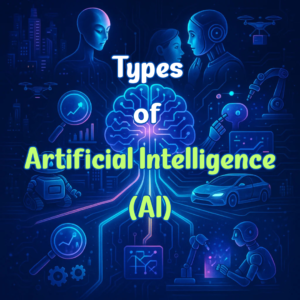AI therapy chatbots have become a go-to solution for quick mental health support. They’re cheap, always available and often feel easier to talk to than a real person. But are they really safe? The growing popularity of mental health bots has brought serious concerns to light, and it’s worth asking if convenience is coming at too high a price.
What Are AI Therapy Chatbots?
These are programs powered by artificial intelligence that mimic conversation to offer emotional support or self-help advice. A few well-known names are Woebot, Wysa and Replika. They use machine learning and natural language processing to respond to your messages. Some even claim they can help with anxiety, depression or stress.
Why Do People Use Them?
- They’re available 24/7. You can chat whenever you need.
- They’re budget-friendly. Many are free or charge very little.
- They feel private. You don’t have to face anyone in person.
But while these bots may seem helpful, they aren’t without issues, and some of those problems can be serious.
What Are the Risks?
1. Lack of Personal Connection
Therapy is about more than words. Real therapists pick up on tone, mood, pauses and even body language. Bots don’t. They respond based only on what you say, often without context. That means they can miss key emotional cues that a trained professional would catch.
Ever tried telling a chatbot you feel “empty” or “gone”? Responses can be off or flat. You might get a chipper, “You’re strong, keep going!” when what you really need is deep support.
2. Dangerous or Incomplete Advice
Chatbots aren’t licensed to give medical or therapeutic advice. But they still try — and that can be risky. In some tests, bots gave unhelpful or incorrect responses to people mentioning self-harm.
Which chatbots failed in tests? A Stanford University study found popular bots gave mixed, sometimes unsafe responses to people saying they were considering hurting themselves. Some didn’t suggest reaching out to a human or calling emergency services.
3. They Can’t Handle Crises
What happens if someone is in a true emergency?
Many bots aren’t designed to handle real-life mental health threats. They may give a quick warning or suggest “deep breathing” instead of calling for help. And in a life-or-death moment, that matters.
Who should you contact in a crisis? Always go straight to a licensed therapist, a doctor, or a mental health emergency hotline in your area. AI can’t replace that kind of help.
4. Privacy Is a Big Concern
Where does your data go? That’s a valid question to ask. Chatting with these bots means sharing personal, sensitive information. But not all apps are honest about what they do with your messages. Some collect and store conversations and may use them for research or even marketing.
- Always read the fine print on privacy.
- Check if your data is encrypted.
- Don’t share personal details like your location or full name.
5. No Clear Rules or Oversight
Unlike doctors and therapists, chatbot makers don’t always have to follow strict rules. There’s little government oversight right now. This means these tools vary widely in quality, safety and built-in protections.
What regulations are in place? Not many. Some governments are starting to pay attention, but most mental health chatbots run with little or no healthcare regulation.
When Should You Use AI Therapy Chatbots?
Not all use is bad. These tools can help you track your mood or gently remind you to reflect. They can support day-to-day wellness routines. But they simply aren’t built for deep or serious mental health problems.
Good times to use a chatbot:
- Managing everyday stress
- Practising mindfulness or journaling
- Tracking habits or moods
- Getting gentle reminders to stay grounded
Bad times to rely on a chatbot:
- Feeling very depressed or hopeless
- Considering self-harm or suicide
- Needing a medical diagnosis
- Living with trauma or PTSD
Are AI Therapy Bots Getting Better?
Yes, but progress is slow. Some apps are now working with real therapists to improve their scripts. Others are trying to add warning systems when users type in crisis-related words.
Who is working on this? Groups like the FDA and the World Health Organisation have started looking into AI mental health apps. Companies are also seeking expert help to make their systems safer and smarter.
Still, experts agree: these tools may help with light support, but they shouldn’t replace human care.
Final Thoughts
AI therapy chatbots can be useful. But they’re not a cure or a real substitute for human connection. If you’re struggling, don’t keep it to yourself.
Talk to someone who listens without a script. Behind every mental health success story is more than just smart tech; there’s always a human ready to help.
If you need help now:
Call a mental health crisis line or speak to a professional today. Your life and peace of mind are too important to leave in a chatbot’s hands.




